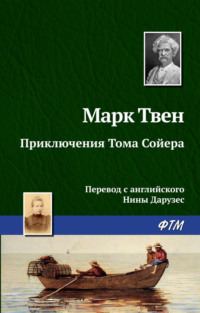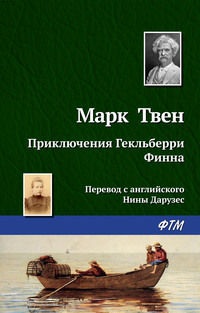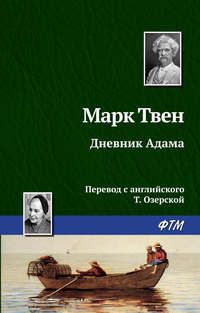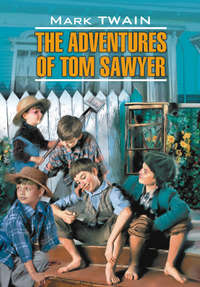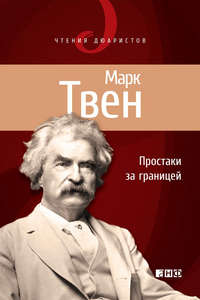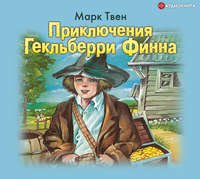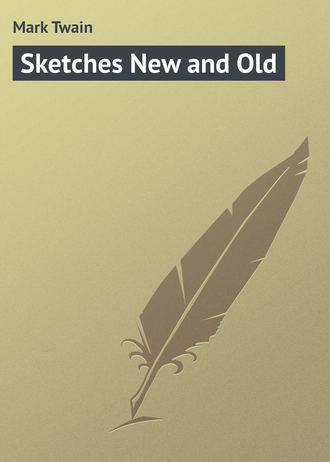
Sketches New and Old
A sheet-bath was recommended. I had never refused a remedy yet, and it seemed poor policy to commence then; therefore I determined to take a sheet-bath, notwithstanding I had no idea what sort of arrangement it was. It was administered at midnight, and the weather was very frosty. My breast and back were bared, and a sheet (there appeared to be a thousand yards of it) soaked in ice-water, was wound around me until I resembled a swab for a Columbiad.
It is a cruel expedient. When the chilly rag touches one’s warm flesh, it makes him start with sudden violence, and gasp for breath just as men do in the death-agony. It froze the marrow in my bones and stopped the beating of my heart. I thought my time had come.
Young Wilson said the circumstance reminded him of an anecdote about a negro who was being baptized, and who slipped from the parson’s grasp, and came near being drowned. He floundered around, though, and finally rose up out of the water considerably strangled and furiously angry, and started ashore at once, spouting water like a whale, and remarking, with great asperity, that “one o’ dese days some gen’l’man’s nigger gwyne to get killed wid jis’ such damn foolishness as dis!”
Never take a sheet-bath– never. Next to meeting a lady acquaintance who, for reasons best known to herself, don’t see you when she looks at you, and don’t know you when she does see you, it is the most uncomfortable thing in the world.
But, as I was saying, when the sheet-bath failed to cure my cough, a lady friend recommended the application of a mustard plaster to my breast. I believe that would have cured me effectually, if it had not been for young Wilson. When I went to bed, I put my mustard plaster – which was a very gorgeous one, eighteen inches square – where I could reach it when I was ready for it. But young Wilson got hungry in the night, and here is food for the imagination.
After sojourning a week at Lake Bigler, I went to Steamboat Springs, and, besides the steam-baths, I took a lot of the vilest medicines that were ever concocted. They would have cured me, but I had to go back to Virginia City, where, notwithstanding the variety of new remedies I absorbed every day, I managed to aggravate my disease by carelessness and undue exposure.
I finally concluded to visit San Francisco, and the first day I got there a lady at the hotel told me to drink a quart of whisky every twenty-four hours, and a friend up-town recommended precisely the same course. Each advised me to take a quart; that made half a gallon. I did it, and still live.
Now, with the kindest motives in the world, I offer for the consideration of consumptive patients the variegated course of treatment I have lately gone through. Let them try it; if it don’t cure, it can’t more than kill them.
A Curious Pleasure Excursion[37]
[We have received the following advertisement, but, inasmuch as it concerns a matter of deep and general interest, we feel fully justified in inserting it in our reading-columns. We are confident that our conduct in this regard needs only explanation, not apology. – Ed., N. Y. Herald.]
AdvertisementThis is to inform the public that in connection with Mr. Barnum I have leased the comet for a term of years; and I desire also to solicit the public patronage in favor of a beneficial enterprise which we have in view.
We propose to fit up comfortable, and even luxurious, accommodations in the comet for as many persons as will honor us with their patronage, and make an extended excursion among the heavenly bodies. We shall prepare 1,000,000 state-rooms in the tail of the comet (with hot and cold water, gas, looking-glass, parachute, umbrella, etc., in each), and shall construct more if we meet with a sufficiently generous encouragement. We shall have billiard-rooms, card-rooms, music-rooms, bowling-alleys and many spacious theaters and free libraries; and on the main deck we propose to have a driving park, with upward of 100,000 miles of roadway in it. We shall publish daily newspapers also.
Departure Of The CometThe comet will leave New York at 10 P.M. on the 20th inst., and therefore it will be desirable that the passengers be on board by eight at the latest, to avoid confusion in getting under way. It is not known whether passports will be necessary or not, but it is deemed best that passengers provide them, and so guard against all contingencies. No dogs will be allowed on board. This rule has been made in deference to the existing state of feeling regarding these animals, and will be strictly adhered to. The safety of the passengers will in all ways be jealously looked to. A substantial iron railing will be put up all around the comet, and no one will be allowed to go to the edge and look over unless accompanied by either my partner or myself.
The Postal Servicewill be of the completest character. Of course the telegraph, and the telegraph only, will be employed; consequently friends occupying state-rooms 20,000,000 and even 30,000,000 miles apart will be able to send a message and receive a reply inside of eleven days. Night messages will be half-rate. The whole of this vast postal system will be under the personal superintendence of Mr. Hale of Maine. Meals served at all hours. Meals served in staterooms charged extra.
Hostility is not apprehended from any great planet, but we have thought it best to err on the safe side, and therefore have provided a proper number of mortars, siege-guns, and boarding-pikes. History shows that small, isolated communities, such as the people of remote islands, are prone to be hostile to strangers, and so the same may be the case with
The Inhabitants Of Starsof the tenth or twentieth magnitude. We shall in no case wantonly offend the people of any star, but shall treat all alike with urbanity and kindliness, never conducting ourselves toward an asteroid after a fashion which we could not venture to assume toward Jupiter or Saturn. I repeat that we shall not wantonly offend any star; but at the same time we shall promptly resent any injury that may be done us, or any insolence offered us, by parties or governments residing in any star in the firmament. Although averse to the shedding of blood, we shall still hold this course rigidly and fearlessly, not only toward single stars, but toward constellations. We shall hope to leave a good impression of America behind us in every nation we visit, from Venus to Uranus. And, at all events, if we cannot inspire love we shall at least compel respect for our country wherever we go. We shall take with us, free of charge,
A Great Force Of Missionaries,and shed the true light upon all the celestial orbs which, physically aglow, are yet morally in darkness. Sunday-schools will be established wherever practicable. Compulsory education will also be introduced.
The comet will visit Mars first, and proceed to Mercury, Jupiter, Venus, and Saturn. Parties connected with the government of the District of Columbia and with the former city government of New York, who may desire to inspect the rings, will be allowed time and every facility. Every star of prominent magnitude will be visited, and time allowed for excursions to points of interest inland.
The Dog Starhas been stricken from the program. Much time will be spent in the Great Bear, and, indeed, in every constellation of importance. So, also, with the Sun and Moon and the Milky Way, otherwise the Gulf Stream of the Skies. Clothing suitable for wear in the sun should be provided. Our program has been so arranged that we shall seldom go more than 100,000,000 of miles at a time without stopping at some star. This will necessarily make the stoppages frequent and preserve the interest of the tourist. Baggage checked through to any point on the route. Parties desiring to make only a part of the proposed tour, and thus save expense, may stop over at any star they choose and wait for the return voyage.
After visiting all the most celebrated stars and constellations in our system and personally inspecting the remotest sparks that even the most powerful telescope can now detect in the firmament, we shall proceed with good heart upon
A Stupendous Voyageof discovery among the countless whirling worlds that make turmoil in the mighty wastes of space that stretch their solemn solitudes, their unimaginable vastness billions upon billions of miles away beyond the farthest verge of telescopic vision, till by comparison the little sparkling vault we used to gaze at on Earth shall seem like a remembered phosphorescent flash of spangles which some tropical voyager’s prow stirred into life for a single instant, and which ten thousand miles of phosphorescent seas and tedious lapse of time had since diminished to an incident utterly trivial in his recollection. Children occupying seats at the first table will be charged full fare.
First-Class Farefrom the Earth to Uranus, including visits to the Sun and Moon and all the principal planets on the route, will be charged at the low rate of $2 for every 50,000,000 miles of actual travel. A great reduction will be made where parties wish to make the round trip. This comet is new and in thorough repair and is now on her first voyage. She is confessedly the fastest on the line. She makes 20,000,000 miles a day, with her present facilities; but, with a picked American crew and good weather, we are confident we can get 40,000,000 out of her. Still, we shall never push her to a dangerous speed, and we shall rigidly prohibit racing with other comets. Passengers desiring to diverge at any point or return will be transferred to other comets. We make close connections at all principal points with all reliable lines. Safety can be depended upon. It is not to be denied that the heavens are infested with
Old Ramshackle Cometsthat have not been inspected or overhauled in 10,000 years, and which ought long ago to have been destroyed or turned into hail-barges, but with these we have no connection whatever. Steerage passengers not allowed abaft the main hatch.
Complimentary round-trip tickets have been tendered to General Butler, Mr. Shepherd, Mr. Richardson, and other eminent gentlemen, whose public services have entitled them to the rest and relaxation of a voyage of this kind. Parties desiring to make the round trip will have extra accommodation. The entire voyage will be completed, and the passengers landed in New York again, on the 14th of December, 1991. This is, at least, forty years quicker than any other comet can do it in. Nearly all the back-pay members contemplate making the round trip with us in case their constituents will allow them a holiday. Every harmless amusement will be allowed on board, but no pools permitted on the run of the comet – no gambling of any kind. All fixed stars will be respected by us, but such stars as seem to need fixing we shall fix. If it makes trouble, we shall be sorry, but firm.
Mr. Coggia having leased his comet to us, she will no longer be called by his name, but by my partner’s. N. B. – Passengers by paying double fare will be entitled to a share in all the new stars, suns, moons, comets, meteors, and magazines of thunder and lightning we may discover. Patent-medicine people will take notice that
We Carry Bulletin-Boardsand a paint-brush along for use in the constellations, and are open to terms. Cremationists are reminded that we are going straight to – some hot places – and are open to terms. To other parties our enterprise is a pleasure excursion, but individually we mean business. We shall fly our comet for all it is worth.
For Further Particulars,or for freight or passage, apply on board, or to my partner, but not to me, since I do not take charge of the comet until she is under way. It is necessary, at a time like this, that my mind should not be burdened with small business details.
Mark Twain.
Running For Governor[38]
A few months ago I was nominated for Governor of the great state of New York, to run against Mr. John T. Smith and Mr. Blank J. Blank on an independent ticket. I somehow felt that I had one prominent advantage over these gentlemen, and that was – good character. It was easy to see by the newspapers that if ever they had known what it was to bear a good name, that time had gone by. It was plain that in these latter years they had become familiar with all manner of shameful crimes. But at the very moment that I was exalting my advantage and joying in it in secret, there was a muddy undercurrent of discomfort “riling” the deeps of my happiness, and that was – the having to hear my name bandied about in familiar connection with those of such people. I grew more and more disturbed. Finally I wrote my grandmother about it. Her answer came quick and sharp. She said:
“You have never done one single thing in all your life to be ashamed of – not one. Look at the newspapers – look at them and comprehend what sort of characters Messrs. Smith and Blank are, and then see if you are willing to lower yourself to their level and enter a public canvass with them.”
It was my very thought! I did not sleep a single moment that night. But, after all, I could not recede.
I was fully committed, and must go on with the fight. As I was looking listlessly over the papers at breakfast I came across this paragraph, and I may truly say I never was so confounded before.
“Perjury. – Perhaps, now that Mr. Mark Twain is before the people as a candidate for Governor, he will condescend to explain how he came to be convicted of perjury by thirty-four witnesses in Wakawak, Cochin China, in 1863, the intent of which perjury being to rob a poor native widow and her helpless family of a meager plantain-patch, their only stay and support in their bereavement and desolation. Mr. Twain owes it to himself, as well as to the great people whose suffrages he asks, to clear this matter up. Will he do it?”
I thought I should burst with amazement! Such a cruel, heartless charge! I never had seen Cochin China! I never had heard of Wakawak! I didn’t know a plantain-patch from a kangaroo! I did not know what to do. I was crazed and helpless. I let the day slip away without doing anything at all. The next morning the same paper had this – nothing more:
“Significant. – Mr. Twain, it will be observed, is suggestively silent about the Cochin China perjury.”
[Mem. – During the rest of the campaign this paper never referred to me in any other way than as “the infamous perjurer Twain.”]
Next came the Gazette, with this:
“Wanted to know. – Will the new candidate for Governor deign to explain to certain of his fellow-citizens (who are suffering to vote for him!) the little circumstance of his cabin-mates in Montana losing small valuables from time to time, until at last, these things having been invariably found on Mr. Twain’s person or in his “trunk” (newspaper he rolled his traps in), they felt compelled to give him a friendly admonition for his own good, and so tarred and feathered him, and rode him on a rail; and then advised him to leave a permanent vacuum in the place he usually occupied in the camp. Will he do this?”
Could anything be more deliberately malicious than that? For I never was in Montana in my life.
[After this, this journal customarily spoke of me as, “Twain, the Montana Thief.”]
I got to picking up papers apprehensively – much as one would lift a desired blanket which he had some idea might have a rattlesnake under it. One day this met my eye:
“The lie nailed. – By the sworn affidavits of Michael O’Flanagan, Esq., of the Five Points, and Mr. Snub Rafferty and Mr. Catty Mulligan, of Water Street, it is established that Mr. Mark Twain’s vile statement that the lamented grandfather of our noble standard-bearer, Blank J. Blank, was hanged for highway robbery, is a brutal and gratuitous lie, without a shadow of foundation in fact. It is disheartening to virtuous men to see such shameful means resorted to to achieve political success as the attacking of the dead in their graves, and defiling their honored names with slander. When we think of the anguish this miserable falsehood must cause the innocent relatives and friends of the deceased, we are almost driven to incite an outraged and insulted public to summary and unlawful vengeance upon the traducer. But no! let us leave him to the agony of a lacerated conscience (though if passion should get the better of the public, and in its blind fury they should do the traducer bodily injury, it is but too obvious that no jury could convict and no court punish the perpetrators of the deed).”
The ingenious closing sentence had the effect of moving me out of bed with despatch that night, and out at the back door also, while the “outraged and insulted public” surged in the front way, breaking furniture and windows in their righteous indignation as they came, and taking off such property as they could carry when they went. And yet I can lay my hand upon the Book and say that I never slandered Mr. Blank’s grandfather. More: I had never even heard of him or mentioned him up to that day and date.
[I will state, in passing, that the journal above quoted from always referred to me afterward as “Twain, the Body-Snatcher.”]
The next newspaper article that attracted my attention was the following:
“A sweet candidate. – Mr. Mark Twain, who was to make such a blighting speech at the mass-meeting of the Independents last night, didn’t come to time! A telegram from his physician stated that he had been knocked down by a runaway team, and his leg broken in two places – sufferer lying in great agony, and so forth, and so forth, and a lot more bosh of the same sort. And the Independents tried hard to swallow the wretched subterfuge, and pretend that they did not know what was the real reason of the absence of the abandoned creature whom they denominate their standard-bearer. A certain man was seen to reel into Mr. Twain’s hotel last night in a state of beastly intoxication. It is the imperative duty of the Independents to prove that this besotted brute was not Mark Twain himself. We have them at last! This is a case that admits of no shirking. The voice of the people demands in thunder tones, “Who was that man?””
It was incredible, absolutely incredible, for a moment, that it was really my name that was coupled with this disgraceful suspicion. Three long years had passed over my head since I had tasted ale, beer, wine or liquor of any kind.
[It shows what effect the times were having on me when I say that I saw myself, confidently dubbed “Mr. Delirium Tremens Twain” in the next issue of that journal without a pang – notwithstanding I knew that with monotonous fidelity the paper would go on calling me so to the very end.]
By this time anonymous letters were getting to be an important part of my mail matter. This form was common:
“How about that old woman you kiked of your premises which was beging.
Pol. Pry.”
And this:
“There is things which you have done which is unbeknowens to anybody but me. You better trot out a few dols, to yours truly, or you’ll hear through the papers from
Handy Andy.”
This is about the idea. I could continue them till the reader was surfeited, if desirable.
Shortly the principal Republican journal “convicted” me of wholesale bribery, and the leading Democratic paper “nailed” an aggravated case of blackmailing to me.
[In this way I acquired two additional names: “Twain the Filthy Corruptionist” and “Twain the Loathsome Embracer.”]
By this time there had grown to be such a clamor for an “answer” to all the dreadful charges that were laid to me that the editors and leaders of my party said it would be political ruin for me to remain silent any longer. As if to make their appeal the more imperative, the following appeared in one of the papers the very next day:
“Behold the man! – The independent candidate still maintains silence. Because he dare not speak. Every accusation against him has been amply proved, and they have been indorsed and reindorsed by his own eloquent silence, till at this day he stands forever convicted. Look upon your candidate, Independents! Look upon the Infamous Perjurer! the Montana Thief! the Body-Snatcher! Contemplate your incarnate Delirium Tremens! your Filthy Corruptionist! your Loathsome Embracer! Gaze upon him – ponder him well – and then say if you can give your honest votes to a creature who has earned this dismal array of titles by his hideous crimes, and dares not open his mouth in denial of any one of them!”
There was no possible way of getting out of it, and so, in deep humiliation, I set about preparing to “answer” a mass of baseless charges and mean and wicked falsehoods. But I never finished the task, for the very next morning a paper came out with a new horror, a fresh malignity, and seriously charged me with burning a lunatic asylum with all its inmates, because it obstructed the view from my house. This threw me into a sort of panic. Then came the charge of poisoning my uncle to get his property, with an imperative demand that the grave should be opened. This drove me to the verge of distraction. On top of this I was accused of employing toothless and incompetent old relatives to prepare the food for the foundling hospital when I was warden. I was wavering – wavering. And at last, as a due and fitting climax to the shameless persecution that party rancor had inflicted upon me, nine little toddling children, of all shades of color and degrees of raggedness, were taught to rush onto the platform at a public meeting, and clasp me around the legs and call me Pa!
I gave it up. I hauled down my colors and surrendered. I was not equal to the requirements of a Gubernatorial campaign in the state of New York, and so I sent in my withdrawal from the candidacy, and in bitterness of spirit signed it,
“Truly yours, once a decent man, but now
“Mark Twain, I.P., M.T., B.S., D.T., F.C., and L.E.”
A Mysterious Visit
The first notice that was taken of me when I “settled down” recently was by a gentleman who said he was an assessor, and connected with the U. S. Internal Revenue Department. I said I had never heard of his branch of business before, but I was very glad to see him all the same. Would he sit down? He sat down. I did not know anything particular to say, and yet I felt that people who have arrived at the dignity of keeping house must be conversational, must be easy and sociable in company. So, in default of anything else to say, I asked him if he was opening his shop in our neighborhood.
He said he was. [I did not wish to appear ignorant, but I had hoped he would mention what he had for sale.]
I ventured to ask him “How was trade?” And he said “So-so.”
I then said we would drop in, and if we liked his house as well as any other, we would give him our custom.
He said he thought we would like his establishment well enough to confine ourselves to it – said he never saw anybody who would go off and hunt up another man in his line after trading with him once.
That sounded pretty complacent, but barring that natural expression of villainy which we all have, the man looked honest enough.
I do not know how it came about exactly, but gradually we appeared to melt down and run together, conversationally speaking, and then everything went along as comfortably as clockwork.
We talked, and talked, and talked – at least I did; and we laughed, and laughed, and laughed – at least he did. But all the time I had my presence of mind about me – I had my native shrewdness turned on “full head,” as the engineers say. I was determined to find out all about his business in spite of his obscure answers – and I was determined I would have it out of him without his suspecting what I was at. I meant to trap him with a deep, deep ruse. I would tell him all about my own business, and he would naturally so warm to me during this seductive burst of confidence that he would forget himself, and tell me all about his affairs before he suspected what I was about. I thought to myself, My son, you little know what an old fox you are dealing with. I said:
“Now you never would guess what I made lecturing this winter and last spring?”
“No – don’t believe I could, to save me. Let me see – let me see. About two thousand dollars, maybe? But no; no, sir, I know you couldn’t have made that much. Say seventeen hundred, maybe?”


